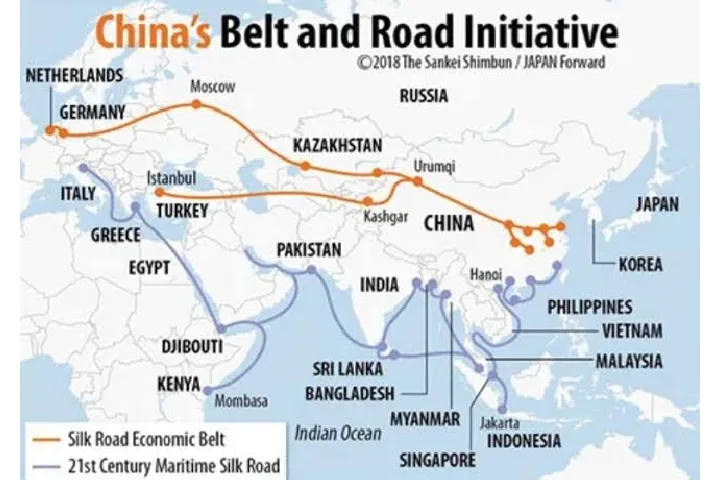China is owed more than a trillion dollars ($1.34 trillion) through its Belt and Road Initiative (BRI), making it the biggest debt collector in the world, a report said this week, with an estimated 80 percent of the loans supporting countries in financial distress.
Beijing says upwards of 150 countries stretching from Uruguay to Sri Lanka have signed up to the BRI, a vast global infrastructure push unveiled by President Xi Jinping a decade ago.
The first decade of the initiative saw China distribute huge loans to fund the construction of bridges, ports and highways in low and middle-income countries.
But much more than half of those loans have now entered their principal repayment period, said a report released on Monday by AidData, a research institute tracking development finance at Virginia’s College of William and Mary.
That figure is set to hit 75 percent by the end of the decade, it added.
Based on data collected on Chinese financing of almost 21,000 projects in some 165 countries, AidData said Beijing had now committed aid and credit “hovering around $80 billion a year” to low and middle-income nations.
The United States, in contrast, has provided $60 billion to such countries a year.
The overseas finance to developing countries, the report suggests, has been a reason China has been winning allies among poor economies.
In recent months, there has been criticism from the West and in some recipient nations, like Sri Lanka and Zambia, that infrastructure projects China-funded burdened them with debt they were unable to repay.
Last month, at a summit that marked a decade since the initiative was first unveiled, Xi said that China would put more than $100 billion of new funds into the BRI.
However, a joint report by the World Bank and other institutions, including AidData, released this year said China had been forced to give out billions of dollars in bailout loans to BRI countries in recent years.
Proponents of the BRI praise it for bringing resources and economic growth to the Global South.
But critics have long pointed to opaque pricing for projects built by Chinese companies, with countries including Malaysia and Myanmar renegotiating deals to bring down costs.
AidData said that China has in recent years suffered reputational damage among developing countries, with its approval rating falling from 56 percent in 2019 to 40 percent in 2021.
The BRI has also drawn scrutiny for its massive carbon footprint and the environmental degradation caused by massive infrastructure projects.
#FMsays The “China debt trap” claim is a narrative fabricated by certain forces to disrupt China’s cooperation with developing countries, FM spokesman Wang Wenbin said after a US report said most of China’s loans through BRI were provided to countries in financial distress. pic.twitter.com/I1ImOs0j7S
— China Daily (@ChinaDaily) November 7, 2023




















